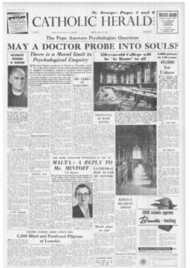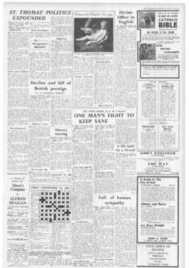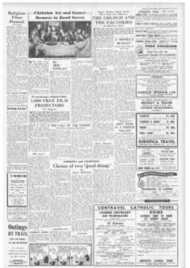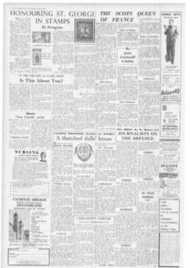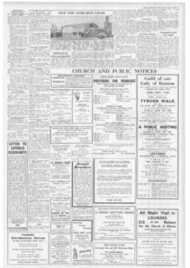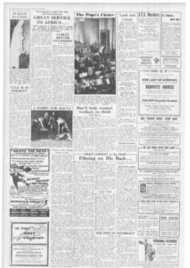Page 3, 18th April 1958
Page 3
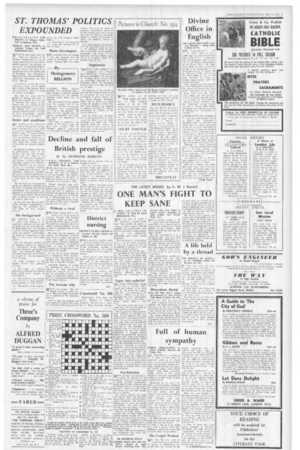
Report an error
Noticed an error on this page?If you've noticed an error in this article please click here to report it.
Tags
Share
Related articles
Rochester Begins Church To Honour Martyr-cardinal
Rochester Stone For U.s. College
Obituary
British Anti-irish Bias?
Doctor's Helping Hand
Decline and fall of British prestige
By Sir DMMOND MORTON
L 0 R CHATHAM AND AMERICA, by 0. A. Sherrard The Bodley Head, 300.
THIS third and last volume of -1. Mr. Sherrard's biography of William Pitt. Earl of Chatham, runs from October. 1761, when he resigned office as Secretary of State and Leader of the House of Commons, to his death in 1778.
Though requiring some prior knowledge of the constitutional pattern and course of events 200 years ago fully to appreciate the political and personal struggle described, the book may be enjoyed as a self-contained story of the chaos and degradation into which the affairs of this country declined during those 17 years.
Without a rival
THE factual background is well
known. In a dying epoch of outdated privilege and political corruption, where no other than he had offered the country reform, Pitt stood out so high in the more readily accepted qualities that go to make a statesman that he was without a rival.
He alone saw the necessity of creating an alternative Government ready to replace the one in power and hence to develop a party system genuinely supported by a free electorate. A matchless orator, he Used the House of Commons as a forum from which to address the people.
Yet he was by nature anything but a democrat, while, overconscions of his own superiority. he detested joint responsibility and the need to consider colleagues.
Fanatically desirous of raising the international status of his country, he had successfully chosen the road of war to that end. By destroying the power of France in India and America. he had more than laid the foundations of the British Empire.
The reasons why
wHAT went wrong ? Wht did " British prestige thereafter decline ? Who was really responsible for the defection of the American colonies ?
Had Pitt been less arrogant and more adaptable, could he have o on the confidence of the King and his friends and so perhaps have remained in power ?
Did his recurrent attacks of physical disease and merital abnormality impair his judgment or force him into inactivity at the more crucial moments ? Did his brilliance in opposition serve merely to confuse counsel and to nullify the feebler efforts of lesser men ?
Many modern historians blame Pitt for Britain's inability to hold the world position put into her grasp by Pitt himself. Mr. Sherrard attempts to show that, had the policies he advocated been followed. the course of history might well have been different.
Whereas this is indeed possible. the question why his advocacy failed and why his policies were not followed remains a matter for debate,
blog comments powered by Disqus


